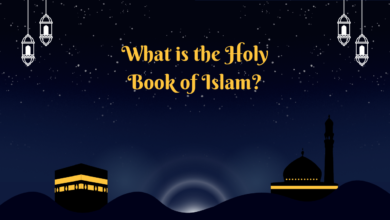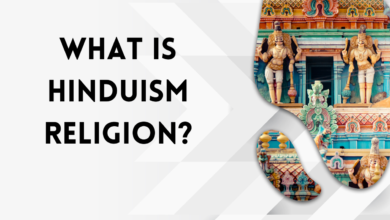Kya Salgirah manana Haram Hai?
Exploring the Controversy Surrounding Birthday Celebrations in Islam

Kya Salgirah manana Haram Hai?
The permissibility of celebrating birthdays in Islam is a topic of debate. While some argue it lacks a clear Islamic tradition, others contend it can be culturally meaningful if aligned with Islamic values.

Introduction:
The question of whether celebrating birthdays, known as “salgirah” in Urdu, is permissible in Islam is a topic that has sparked discussions and debates within the Muslim community. Some argue that it is a harmless cultural practice, while others question its conformity with Islamic teachings. In this article, we will explore the different perspectives on celebrating birthdays in Islam and examine the reasons behind the diverse opinions.
Islamic Perspective on Celebrations:
Islam, as a comprehensive way of life, provides guidelines for various aspects of human existence, including celebrations and festivities. While Islam encourages joyous occasions, it also emphasizes moderation and adherence to ethical principles. The Prophet Muhammad (peace be upon him) is reported to have participated in celebrations like Eid, which marks the end of Ramadan, and encouraged positive social gatherings.
However, Islam prohibits practices that involve imitating non-Muslim customs or engaging in activities that contradict Islamic values. Therefore, the permissibility of celebrating birthdays depends on the nature of the celebration and the practices associated with it.

Also check.
- Why Ludo is Haram in Islam?
- Who Crucified Jesus in Islam?
- What is Confucianism?
- What is Haram?
- When did Christianity start?
Arguments Against Celebrating Birthdays:
- Lack of Islamic Tradition: Critics of birthday celebrations argue that there is no clear evidence from the Quran or Hadith (sayings and actions of the Prophet) that supports the practice of celebrating birthdays. Since Islam is rooted in a tradition-based approach, some Muslims are hesitant to adopt practices that lack a direct association with the Prophet’s time.
- Mimicking Non-Muslim Customs: Another concern is the potential imitation of non-Muslim traditions. Some argue that the concept of celebrating birthdays originated from non-Islamic cultures, and adopting such practices may lead to the erosion of Islamic identity.
- Extravagance and Waste: Critics also point to the excessiveness often associated with birthday celebrations, such as elaborate parties, expensive gifts, and wasteful spending. Islam encourages simplicity and moderation in all aspects of life, and extravagant celebrations may be viewed as contrary to these principles.
Arguments in Favor of Celebrating Birthdays:
- Cultural Expression: Advocates for birthday celebrations within the Muslim community argue that the practice can be a form of cultural expression rather than a religious one. They contend that as long as the celebration aligns with Islamic values and does not involve prohibited activities, it can be considered a cultural event.
- Expressing Gratitude to Allah: Some argue that celebrating birthdays provides an opportunity for individuals to express gratitude to Allah for the gift of life. By acknowledging the passing of another year, Muslims can use the occasion to reflect on their actions, seek forgiveness, and renew their commitment to living a righteous life.
- Family and Social Bonding: Birthday celebrations are often seen as occasions to strengthen family bonds and promote social harmony. Islam places great importance on maintaining healthy relationships within the family and the broader community. If the celebration fosters unity and goodwill, it may be viewed as permissible.

Conclusion:
The question of whether celebrating birthdays is haram (forbidden) in Islam is a nuanced one, with opinions varying among scholars and within the Muslim community. While some argue that birthdays lack a clear Islamic tradition and may lead to the adoption of non-Muslim customs, others contend that celebrating birthdays can be a culturally meaningful and spiritually reflective practice, as long as it adheres to Islamic principles.
Ultimately, Muslims should approach the issue with a balanced perspective, considering the intent behind the celebration, the practices involved, and the impact on one’s adherence to Islamic values. As with many aspects of life, the key lies in moderation and mindfulness, ensuring that cultural practices align with the principles outlined in the Quran and the teachings of the Prophet Muhammad (peace be upon him).

FAQs
Is celebrating birthdays (Salgirah Manana) considered haram in Islam?
The permissibility of celebrating birthdays in Islam is a topic of debate. While some argue it lacks a clear Islamic tradition, others contend it can be culturally meaningful if aligned with Islamic values.
What does Islam say about adopting non-Muslim customs in celebrations?
Islam discourages the imitation of non-Muslim customs. Critics of birthday celebrations express concerns about potential cultural assimilation and the erosion of Islamic identity.
Are there any references in the Quran or Hadith that address the celebration of birthdays?
There is no explicit mention of birthday celebrations in the Quran or Hadith. The debate often revolves around the absence of a direct association with the Prophet Muhammad’s time.
What factors should be considered when determining the permissibility of celebrating birthdays in Islam?
Scholars and individuals often consider the nature of the celebration, adherence to Islamic values, avoidance of extravagance, and the potential for strengthening family and social bonds.
Can celebrating birthdays be a form of cultural expression within the Muslim community?
Some argue that celebrating birthdays can be a cultural expression rather than a religious one, provided the celebration aligns with Islamic values and avoids prohibited activities.




